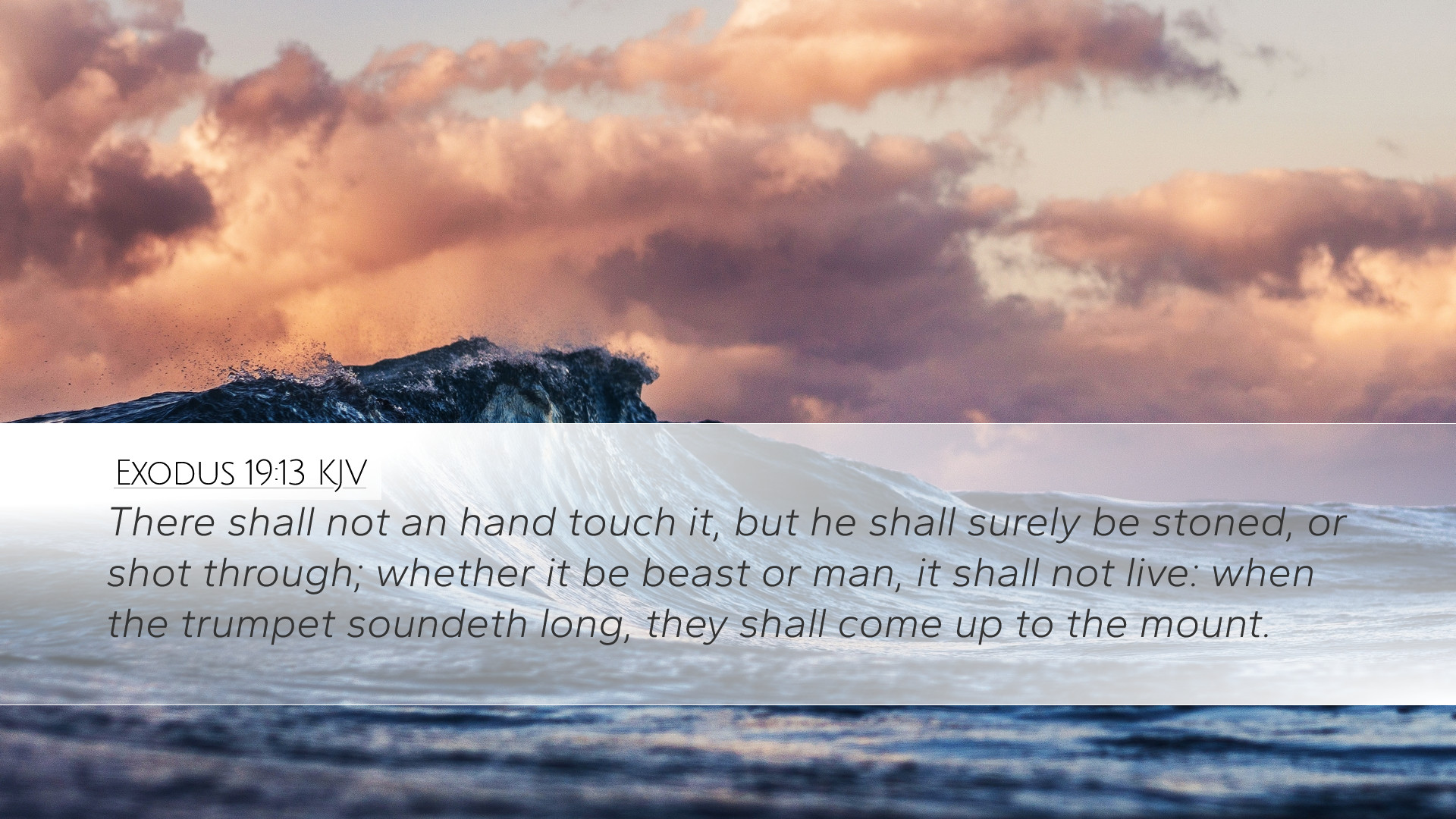Exodus 19:13 Commentary
Verse: “And when the trumpet soundeth long, they shall come up to the mount.” (Exodus 19:13)
Introduction
The passage in Exodus 19:13 occurs within the significant narrative of Israel’s encounter with God at Mount Sinai. This event is pivotal in the history of Israel, marking the moment when God reveals His covenant to His people. Here, we see the preparation and instructions given to the people as they await to meet with the Almighty.
Contextual Background
This verse is situated in the context of the Israelites’ journey from bondage in Egypt to the Promised Land. Prior to this moment, God has freed them from oppression and is now preparing to establish a covenantal relationship with them. The significance of this moment cannot be overstated, as it sets the precedent for Israel’s identity and future relationship with God.
The Call to Approach
The phrase “when the trumpet soundeth long” indicates a divine call, suggesting both an urgency and a form of authority. In ancient Israel, trumpets were sounded for various reasons, including as a signal for assembly and a symbol of God’s presence. Matthew Henry notes that this trumpet signaled the people to approach, but with the understanding that such an act was only upon divine invitation, reflecting the sacredness of the encounter.
Theological Insights
-
The Holiness of God:
Exodus 19 emphasizes the holiness of God and the preparation required to approach Him. Albert Barnes highlights that this trumpet symbolized God’s invitation to come nearer but also served as a reminder of His transcendent holiness. The people were instructed to consecrate themselves, acknowledging their need for purification before approaching a holy God.
-
Eschatological Significance:
Adam Clarke draws attention to the eschatological implications of the trumpet sound. He suggests that it foreshadows the final call of God to humanity, echoing in the New Testament where the trumpet will sound at Christ’s return, calling the faithful to His presence. The parallel between these two events underscores the continuity of God’s redemptive plan across the biblical narrative.
-
Covenant Relationship:
The gathering at Mount Sinai signifies the establishment of the covenant relationship between God and Israel. This profound event was initiated by God’s grace and communicated through the trumpet’s sound. As noted by Matthew Henry, entering into covenant implies both privilege and responsibility, highlighting the seriousness of the engagement that Israel was about to partake in.
Application for Believers
For modern believers, Exodus 19:13 serves as a reminder of several key spiritual principles:
-
Preparation to Meet God:
Like ancient Israel, Christians are called to prepare their hearts before approaching God. This involves confession, repentance, and a heartfelt recognition of one’s need for grace.
-
Consequence of Holiness:
The holiness of God demands a response from His people. Believers are encouraged to embrace a lifestyle of holiness, recognizing that drawing near to God requires a commitment to righteousness and integrity.
-
Listening for God’s Call:
The sounding of the trumpet invites believers to remain attentive to God’s call in their lives. Just as Israel had to respond to the trumpet, Christians are called to be responsive to the voice of God through prayer and scripture, heeding His direction for their lives.
Conclusion
Exodus 19:13 is not merely a historical account; it is a profound theological statement that shapes our understanding of God’s relationship with His people. As pastors, students, theologians, and scholars reflect on this verse, they are prompted to consider the implications of God’s holiness, the significance of divine calling, and the commitments inherent in covenant relationship.
Ultimately, this verse encourages believers to approach God with reverent awe, knowing that they are invited into a rich, transformative relationship with the Creator of the universe, who calls them to come and hear His voice.


